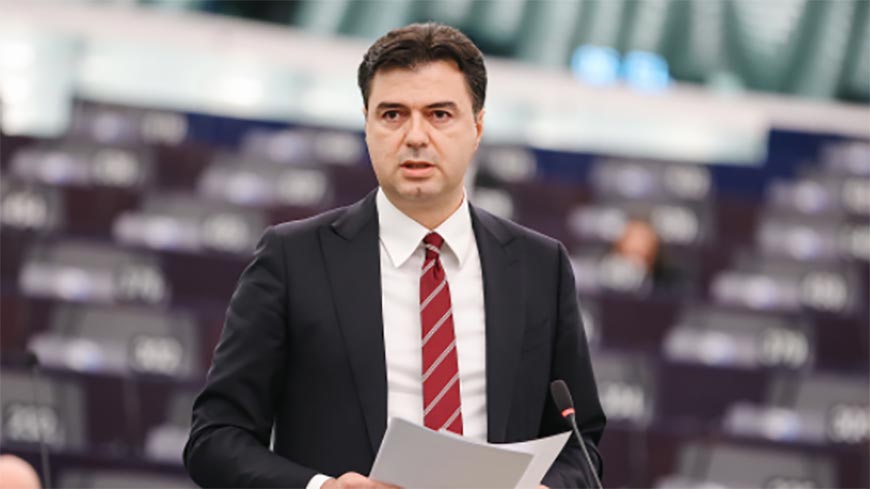The Parliamentary Assembly of the Council of Europe (PACE), meeting in plenary session in Strasbourg, today recommended “the seizure of Russian state assets and their use” in support of the reconstruction of Ukraine. This course of action would “strengthen Ukraine, ensure the accountability of the Russian Federation and deter against any other future aggression.”
In adopting unanimously a resolution, based on the report by Lulzim Basha (Albania, EPP/CD), PACE said that “the aggressor State, the Russian Federation, had the obligation to provide full compensation for the damage, loss and injury caused by its wrongful acts, including the destruction of infrastructure, loss of life and economic hardships,” in accordance with the principles of international law.
Addressing the Assembly during the debate, the Chairman of the Verkhovna Rada, Ruslan Stefanchuk, stated: “The civilisational gap that separates us and Russia is gigantic. And in its depth, any illusions about this aggressive, hateful and unlawful creature disappear. The beast that terrorises and intimidates the entire world that does not care about international norms and rules, that does not value the lives of other people or its own citizens. Therefore, friends, we must act immediately. The time of great concern and strong condemnation is over. […] The time has come for frank and truthful assessments. It is time for quick action and decisions. It is time for responsible leadership. It is time to choose a resolute, united resistance to the Russian terror”.
The resolution states that the Russian State financial assets already frozen by several countries – approximately US$300 billion – must be made available for the reconstruction of Ukraine, pointing out that the documented damages to Ukraine's infrastructure and economy caused by the Russian Federation’s aggression had reached US$416 billion in June 2023.
In this context, PACE called for the creation of “an international compensation mechanism” under the auspices of the Council of Europe, to comprehensively address the damages incurred by natural and legal persons affected, including the State of Ukraine. It also recommended the setting up of an “international trust fund”, where all Russian State assets held by Council of Europe member and non-member States will be deposited, as well as an “impartial and effective international claims commission”, to adjudicate claims presented by Ukraine and entities affected by the Russian aggression.
In its resolution, PACE urged Council of Europe member and non-member states holding Russian State assets to “actively co-operate” in the prompt transfer of these assets to the established international compensation mechanism.
Finally, PACE recalled that the Council of Europe had led the way in expressing its solidarity with Ukraine and its people and by excluding Russia from its membership, and had set up the Register of Damage to record damage, loss or injury suffered by Ukraine, as a first step towards holding Russia accountable for its wrongful acts.
Speaking together with Mr Stefanchuk during a stand-up at the end of the debate, PACE President Theodoros Rousopulos said: “I want to ask once again the governments of the Council of Europe member states to support the Ukrainian people not only with words but also by providing them with the equipment needed to end this war”. Mr Stefanchuk added: “This unanimous decision made by the Parliamentary Assembly will set a new benchmark for other international organisations that will inspire them to follow this path and to show that, in the third year of this horrible war, this is the support that Ukraine needs.”


